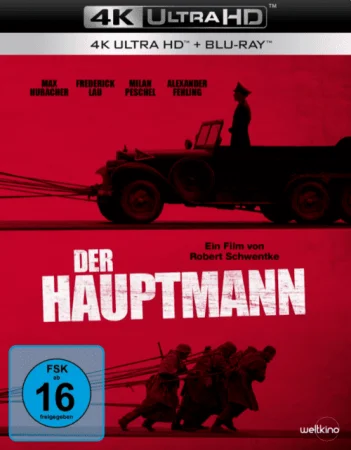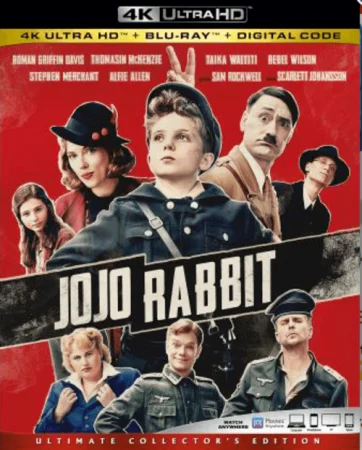Featured Movies
Downfall 4K 2004 Ultra HD 2160p
Сountry: Germany, Austria, Italy
Cast: Bruno Ganz, Alexandra Maria Lara, Ulrich Matthes, Juliane Köhler, Corinna Harfouch, Heino Ferch, Christian Berkel, Matthias Habich, Thomas Kretschmann, Michael Mendl, André Hennicke, Ulrich Noethen, Birgit Minichmayr, Rolf Kanies, Justus von Dohnányi, Dieter Mann, Christian Redl, Götz Otto
In November 1942, a team of SS officers leads a group of young women through the forests. The goal of the campaign is Hitler's headquarters in East Prussia; the girls are candidates for the position of the Fuhrer's personal secretary. Among them is 22-year-old Traudl Junge from Munich. She is hired. The girl is overflowing with joy, because she will serve her Fuhrer... Berlin, April 20, 1945, Hitler is hiding in a bunker under the building of the German Chancery Court. Traudl sleeps in her room deep underground. She is awakened by artillery fire. The enemy is advancing...
The film depicts the last ten days of Hitler's life, beginning with his 56th birthday on April 20 and ending with his suicide on April 30, 1945. Many characters, from Hitler's aides in the bunker to soldiers and civilians dying in the streets of the city as the Russian army storms Berlin, help to understand and show the chaos that reigned in the country during the last days of the war.
User Review
Historical pictures were limited to the presence of the dictator in the portraits that adorned the walls of Nazi institutions. Once in a while, directors still dared to introduce the figure of Hitler into the narrative, but they showed him furtively - in the background, from the back, or even with only one hand. A kind of unspoken taboo was in effect. Only once it was broken. In 1955, Georg Wilhelm Pabst put the movie “The Last Act” /Letzte Akt, Der / (1955), dedicated to the last 10 days of Hitler's life. But there he rather resembled an insane villain (as in the Soviet movie “The Fall of Berlin” (1950)), rather than a real person. And it could not be otherwise, judging by the fact that the picture was shot in those years when all the blame for Germany's crimes was attributed to Hitler alone.
In 2004, with the release of the German film “The Fall” (“Untergang, Der” - in the Russian rental “Bunker”), this tradition finally went away. For the first time filmmakers dared to present to the public another dictator, not like the hysterical demagogue we are used to seeing on the screen. German director Oliver Hirschbigel and the performer of the main role of the famous Swiss actor Bruno Ganz tried to see in the image of Hitler, first of all, the features of a man, putting aside the phrases “executioner”, “devil”, “madman”.
The action of the film unfolds in the last days of the Third Reich, starting from April 20 - the 56th birthday of its creator. One by one, Berlin houses are turning into ruins. Soviet troops break through to the center of the city. The Nazis call for the defense of the capital of children and the elderly. Deafening gunfire alternates with brief moments of silence. In the bunker beneath the Reich Chancellery, with the same rhythm, Hitler's outbursts of anger are replaced by brief moments of calm, when it seems that the collapse of fascism is not yet inevitable. The dictator's entourage is divided in two: some are still loyal to the ideas of National Socialism and ready to go to death, others, realizing the inevitability of defeat, care about saving their own skin. In Hitler himself there is nothing left of that leader, after whom not so long ago the whole nation was ready to march in formation. Day after day, watching all his grandiose plans fail crushingly, he turned into a pathetic sick old man with trembling hands.
“Untergang” from German translates as ‘fall’ or ‘sunset’. The interpretation of the title can be twofold. On the one hand, addressing a broad historical cross-section, the picture shows the fall of the Third Reich. On the other hand, it is about the personal tragedy of Hitler, a dictator experiencing the decline of his empire. Both of these approaches to historical material exist in close interrelation, creating the most complete picture of the final stage of Nazi Germany.
The authors of the movie took upon themselves the hard work of portraying on the screen the entire “top” of Hitler's Reich, striving not only for portrait, but also psychological similarity. It is not always successful: the average viewer will not notice Himmler, Bormann and Goering glimpsed on the screen. A little more attention is paid to the personality of the chief propagandist of the Third Reich, Joseph Goebbels: a cold-blooded thin man with a wolfish look from behind, shedding a feeble tear when the Fuhrer asks him to leave Berlin - that's all the picture tells us about him. The female characters are expressive, but also not without contradictions, especially Eva Braun, who does not want to face the truth and is devoted to her Fuhrer to the last moment. She is the only woman in the bunker who seems to have no fear at all: always tastefully dressed, sympathetic and friendly (is it so - in her memoirs she more often appears empty and hysterical), she is happy to be near her beloved (no matter how ridiculous it may sound in relation to Hitler). The image of Magda Goebbels, who embodies the ideal of a true Aryan woman: a faithful wife and loving mother of six children, who sent them to the other world with her own hand. This monstrous act in the movie is dictated, paradoxically, by humane considerations (it would be more correct to speak of fierce fanaticism, of the existence of Goebbels propaganda in the virtual world): Magda sees no future in a country that has lost its ruler. She treated Hitler, who before his death called her the best mother of the Reich, as a deity, which is expressively conveyed by the episode in which Frau Goebbels, in the last minutes of the dictator's life, begs him on her knees to leave the ruined capital. These shots, as well as the episode where German teenagers in uniform shoot at each other with the words “Heil Hitler” amidst the ruins, smoke and corpses, show how deep was the Germans' faith in Hitler, whom they regarded as a superhuman or messiah.
The main character of the movie is a young typist Traudl Junge (Alexandra Maria Lara), on whose behalf the story is told. The script is based on the book by Hitler's biographer Joachim Festa “Inside Hitler's Bunker” and later written memoirs of Junge, who passed away only three years ago. She got into the Führer's private secretaries as an inexperienced 22-year-old typist with a pretty face. Thoughts of politics do not weigh too heavily on her young head. She is flattered by the fatherly kindness of Hitler, before whom she, like many of his closest people, is in rapturous awe. When he talks about suicide, showing capsules with instantaneous poison, she asks for her “portion” in a burst of devotion to the Führer. But on the eve of Hitler's suicide, watching him eat, bent over his plate like an old man, she feels undisguised pity for him. Junge witnesses the collapse of the myth of the omnipotent dictator. Throughout the movie, however, the heroine does not undergo an evolution. She merely submits to circumstances. All her thoughts and feelings are obscured by fear for her own life. Repentance comes later, years later, when she learns the truth about Nazism, realizing what a cruel game she was involved in. The narrative is framed by the words of Hitler's former secretary about the guilt she feels for her act, when in the spring of 1943 she got into the car that took her to the Fuhrerbunker, after which for two years she served the man who sent millions of innocent people to the other world.
The innovation of the movie “The Fall” lies in the image of Hitler. According to the authors, the phenomenality of his personality is that he managed to glamorize the whole of Germany, being, in essence, a banal man with banal weaknesses. Working on the role, Bruno Ganz listened to recently discovered in the archives of the Finnish radio rare recording of 1942, in which the Fuhrer says normal tone, without resorting to his characteristic exaltation. The actor was able to accurately convey the Austrian accent of Hitler and enrich the game with psychological nuances. But in particular Gantz succeeded in spontaneous mood swings, which have become a “calling card” Hitler, which is captured in all chronicle footage, demonstrating the oratorical abilities of the “great dictator.
At times, the character of Ganz even evokes sympathy. Judging by how affectionately he treats his dog Blondie, what good-naturedness he shows towards the service staff, how tenderly he embraces the devoted Eva, we can conclude that Hitler is a man with a heart and soul, that he is not alien to anything alive. On his comprehension of the personality of Hitler Bruno Ganz said: “I am not ashamed of the fact that in some moments could feel sympathy for him. If the viewer, at least in some scenes, sympathizes with the monster I played, then my work as an actor, I have fulfilled”. Probably, Ganz worked on the image of Hitler on the method of Stanislavsky, advised to convince the role, playing villains, find them positive features. In previous years, actors, “honored” to try on the image of the Nazi leader, first of all, portrayed him as a madman, giving the role of caricature coloring. Ganz initially rejected this template, which is why his work provoked a lively debate.
Isn't showing sympathy for Hitler a sacrilege? According to a Stern magazine poll conducted in Germany on the eve of the movie's premiere, it was found that about 70% of viewers believe it is possible to find humanity in Hitler. After so many years, it is time to abandon stereotypes and look at the perpetrator of the tragedy of the century with different eyes. According to the screenwriter and producer of the film Berndt Eichinger: “The established tradition of one-dimensional image of Hitler as a madman is much more dangerous, because it seems to justify all other Germans ... We must not forget that he turned into his supporters almost the entire population of the country.
The problem of justifying the Germans who accepted Hitler and Nazism as a result of the tragic trials of the 20s - unemployment, hunger, inflation and national humiliation - was especially relevant in the 50s, when an attempt was made to retouch Germany's recent history. Today, such an interpretation of Hitler's image would look unmodern and, as a consequence, would be criticized even more sharply. The authors of “Bunker” expressed the attitude to the history of a generation whose national memory is no longer so acutely affected by Hitler's presence, a generation that did not witness the war.
However, the movie, with the exception of the end credits, does not say a word about the genocide of the Jews and the millions of victims of the war. And this, on the one hand, causes understandable aversion. On the other hand, the authors could hardly add anything new to the traditional depiction of the catastrophic consequences of the war and the horrors of Hitler's terror. In addition, the producers strove for maximum documentaryization and deliberately limited themselves to an almost literal recreation of those events, which according to numerous descriptions in memoirs took place in Hitler's bunker in April 1945. According to the information obtained from the documents, there was no mention of the Holocaust and other Nazi crimes in Hitler's bunker. Whether this was the right decision is debatable - it is not always the climax of a drama that captures the essence of that drama.
In any case, striving for maximum documentaryism, the director achieves the goal, which is expressed not only in the exact correspondence to historical dates, events and persons, but also in the attempt to revitalize the chronicle made by the authors in the episode where the visibly aged dictator blesses the boys for the defense of Berlin. This scene, well known from documentaries, was the last footage of Hitler, depicting him at the moment of the collapse of the Third Reich.
Oliver Hirschbigel did not resort to the direct introduction of the chronicle into the narrative. The “reverse” perspective - the events through the eyes of those who lived through those days outside the bunker - was also excluded. Because of this, the picture loses not only in objectivity, but also in scale. Alas, the film did not reach the high tragedy level. But assuming that the filmmakers would have shown the fall of Nazi Germany as a tragedy, it would have been an unforgivable mistake. Therefore, despite the authentic and sympathetic portrayal of the last days of Hitler and his cronies, “The Bunker” does not cross that dangerous line beyond which evil can seem good, and crime - virtue.
The picture organically combines tradition and an attempt at a new approach to the subject. In the film is palpable and the influence of large-scale Hollywood films with their characteristic dynamics of action and staged scope. The authors of “The Bunker” do not try to explain the phenomenon of Nazism or remind Germans of the guilt of the generation of the 30s-40s in World War II.
The significance of this movie is that it aims to help Germans come to terms with the reality of their country's past, in which millions of ordinary people, led by one more ordinary man, committed unthinkable atrocities.
Resolution: Native 4K (2160p)
HDR: HDR10
Aspect ratio: 1.85:1
Original aspect ratio: 1.85:1
The film depicts the last ten days of Hitler's life, beginning with his 56th birthday on April 20 and ending with his suicide on April 30, 1945. Many characters, from Hitler's aides in the bunker to soldiers and civilians dying in the streets of the city as the Russian army storms Berlin, help to understand and show the chaos that reigned in the country during the last days of the war.
User Review
Historical pictures were limited to the presence of the dictator in the portraits that adorned the walls of Nazi institutions. Once in a while, directors still dared to introduce the figure of Hitler into the narrative, but they showed him furtively - in the background, from the back, or even with only one hand. A kind of unspoken taboo was in effect. Only once it was broken. In 1955, Georg Wilhelm Pabst put the movie “The Last Act” /Letzte Akt, Der / (1955), dedicated to the last 10 days of Hitler's life. But there he rather resembled an insane villain (as in the Soviet movie “The Fall of Berlin” (1950)), rather than a real person. And it could not be otherwise, judging by the fact that the picture was shot in those years when all the blame for Germany's crimes was attributed to Hitler alone.
In 2004, with the release of the German film “The Fall” (“Untergang, Der” - in the Russian rental “Bunker”), this tradition finally went away. For the first time filmmakers dared to present to the public another dictator, not like the hysterical demagogue we are used to seeing on the screen. German director Oliver Hirschbigel and the performer of the main role of the famous Swiss actor Bruno Ganz tried to see in the image of Hitler, first of all, the features of a man, putting aside the phrases “executioner”, “devil”, “madman”.
The action of the film unfolds in the last days of the Third Reich, starting from April 20 - the 56th birthday of its creator. One by one, Berlin houses are turning into ruins. Soviet troops break through to the center of the city. The Nazis call for the defense of the capital of children and the elderly. Deafening gunfire alternates with brief moments of silence. In the bunker beneath the Reich Chancellery, with the same rhythm, Hitler's outbursts of anger are replaced by brief moments of calm, when it seems that the collapse of fascism is not yet inevitable. The dictator's entourage is divided in two: some are still loyal to the ideas of National Socialism and ready to go to death, others, realizing the inevitability of defeat, care about saving their own skin. In Hitler himself there is nothing left of that leader, after whom not so long ago the whole nation was ready to march in formation. Day after day, watching all his grandiose plans fail crushingly, he turned into a pathetic sick old man with trembling hands.
“Untergang” from German translates as ‘fall’ or ‘sunset’. The interpretation of the title can be twofold. On the one hand, addressing a broad historical cross-section, the picture shows the fall of the Third Reich. On the other hand, it is about the personal tragedy of Hitler, a dictator experiencing the decline of his empire. Both of these approaches to historical material exist in close interrelation, creating the most complete picture of the final stage of Nazi Germany.
The authors of the movie took upon themselves the hard work of portraying on the screen the entire “top” of Hitler's Reich, striving not only for portrait, but also psychological similarity. It is not always successful: the average viewer will not notice Himmler, Bormann and Goering glimpsed on the screen. A little more attention is paid to the personality of the chief propagandist of the Third Reich, Joseph Goebbels: a cold-blooded thin man with a wolfish look from behind, shedding a feeble tear when the Fuhrer asks him to leave Berlin - that's all the picture tells us about him. The female characters are expressive, but also not without contradictions, especially Eva Braun, who does not want to face the truth and is devoted to her Fuhrer to the last moment. She is the only woman in the bunker who seems to have no fear at all: always tastefully dressed, sympathetic and friendly (is it so - in her memoirs she more often appears empty and hysterical), she is happy to be near her beloved (no matter how ridiculous it may sound in relation to Hitler). The image of Magda Goebbels, who embodies the ideal of a true Aryan woman: a faithful wife and loving mother of six children, who sent them to the other world with her own hand. This monstrous act in the movie is dictated, paradoxically, by humane considerations (it would be more correct to speak of fierce fanaticism, of the existence of Goebbels propaganda in the virtual world): Magda sees no future in a country that has lost its ruler. She treated Hitler, who before his death called her the best mother of the Reich, as a deity, which is expressively conveyed by the episode in which Frau Goebbels, in the last minutes of the dictator's life, begs him on her knees to leave the ruined capital. These shots, as well as the episode where German teenagers in uniform shoot at each other with the words “Heil Hitler” amidst the ruins, smoke and corpses, show how deep was the Germans' faith in Hitler, whom they regarded as a superhuman or messiah.
The main character of the movie is a young typist Traudl Junge (Alexandra Maria Lara), on whose behalf the story is told. The script is based on the book by Hitler's biographer Joachim Festa “Inside Hitler's Bunker” and later written memoirs of Junge, who passed away only three years ago. She got into the Führer's private secretaries as an inexperienced 22-year-old typist with a pretty face. Thoughts of politics do not weigh too heavily on her young head. She is flattered by the fatherly kindness of Hitler, before whom she, like many of his closest people, is in rapturous awe. When he talks about suicide, showing capsules with instantaneous poison, she asks for her “portion” in a burst of devotion to the Führer. But on the eve of Hitler's suicide, watching him eat, bent over his plate like an old man, she feels undisguised pity for him. Junge witnesses the collapse of the myth of the omnipotent dictator. Throughout the movie, however, the heroine does not undergo an evolution. She merely submits to circumstances. All her thoughts and feelings are obscured by fear for her own life. Repentance comes later, years later, when she learns the truth about Nazism, realizing what a cruel game she was involved in. The narrative is framed by the words of Hitler's former secretary about the guilt she feels for her act, when in the spring of 1943 she got into the car that took her to the Fuhrerbunker, after which for two years she served the man who sent millions of innocent people to the other world.
The innovation of the movie “The Fall” lies in the image of Hitler. According to the authors, the phenomenality of his personality is that he managed to glamorize the whole of Germany, being, in essence, a banal man with banal weaknesses. Working on the role, Bruno Ganz listened to recently discovered in the archives of the Finnish radio rare recording of 1942, in which the Fuhrer says normal tone, without resorting to his characteristic exaltation. The actor was able to accurately convey the Austrian accent of Hitler and enrich the game with psychological nuances. But in particular Gantz succeeded in spontaneous mood swings, which have become a “calling card” Hitler, which is captured in all chronicle footage, demonstrating the oratorical abilities of the “great dictator.
At times, the character of Ganz even evokes sympathy. Judging by how affectionately he treats his dog Blondie, what good-naturedness he shows towards the service staff, how tenderly he embraces the devoted Eva, we can conclude that Hitler is a man with a heart and soul, that he is not alien to anything alive. On his comprehension of the personality of Hitler Bruno Ganz said: “I am not ashamed of the fact that in some moments could feel sympathy for him. If the viewer, at least in some scenes, sympathizes with the monster I played, then my work as an actor, I have fulfilled”. Probably, Ganz worked on the image of Hitler on the method of Stanislavsky, advised to convince the role, playing villains, find them positive features. In previous years, actors, “honored” to try on the image of the Nazi leader, first of all, portrayed him as a madman, giving the role of caricature coloring. Ganz initially rejected this template, which is why his work provoked a lively debate.
Isn't showing sympathy for Hitler a sacrilege? According to a Stern magazine poll conducted in Germany on the eve of the movie's premiere, it was found that about 70% of viewers believe it is possible to find humanity in Hitler. After so many years, it is time to abandon stereotypes and look at the perpetrator of the tragedy of the century with different eyes. According to the screenwriter and producer of the film Berndt Eichinger: “The established tradition of one-dimensional image of Hitler as a madman is much more dangerous, because it seems to justify all other Germans ... We must not forget that he turned into his supporters almost the entire population of the country.
The problem of justifying the Germans who accepted Hitler and Nazism as a result of the tragic trials of the 20s - unemployment, hunger, inflation and national humiliation - was especially relevant in the 50s, when an attempt was made to retouch Germany's recent history. Today, such an interpretation of Hitler's image would look unmodern and, as a consequence, would be criticized even more sharply. The authors of “Bunker” expressed the attitude to the history of a generation whose national memory is no longer so acutely affected by Hitler's presence, a generation that did not witness the war.
However, the movie, with the exception of the end credits, does not say a word about the genocide of the Jews and the millions of victims of the war. And this, on the one hand, causes understandable aversion. On the other hand, the authors could hardly add anything new to the traditional depiction of the catastrophic consequences of the war and the horrors of Hitler's terror. In addition, the producers strove for maximum documentaryization and deliberately limited themselves to an almost literal recreation of those events, which according to numerous descriptions in memoirs took place in Hitler's bunker in April 1945. According to the information obtained from the documents, there was no mention of the Holocaust and other Nazi crimes in Hitler's bunker. Whether this was the right decision is debatable - it is not always the climax of a drama that captures the essence of that drama.
In any case, striving for maximum documentaryism, the director achieves the goal, which is expressed not only in the exact correspondence to historical dates, events and persons, but also in the attempt to revitalize the chronicle made by the authors in the episode where the visibly aged dictator blesses the boys for the defense of Berlin. This scene, well known from documentaries, was the last footage of Hitler, depicting him at the moment of the collapse of the Third Reich.
Oliver Hirschbigel did not resort to the direct introduction of the chronicle into the narrative. The “reverse” perspective - the events through the eyes of those who lived through those days outside the bunker - was also excluded. Because of this, the picture loses not only in objectivity, but also in scale. Alas, the film did not reach the high tragedy level. But assuming that the filmmakers would have shown the fall of Nazi Germany as a tragedy, it would have been an unforgivable mistake. Therefore, despite the authentic and sympathetic portrayal of the last days of Hitler and his cronies, “The Bunker” does not cross that dangerous line beyond which evil can seem good, and crime - virtue.
The picture organically combines tradition and an attempt at a new approach to the subject. In the film is palpable and the influence of large-scale Hollywood films with their characteristic dynamics of action and staged scope. The authors of “The Bunker” do not try to explain the phenomenon of Nazism or remind Germans of the guilt of the generation of the 30s-40s in World War II.
The significance of this movie is that it aims to help Germans come to terms with the reality of their country's past, in which millions of ordinary people, led by one more ordinary man, committed unthinkable atrocities.
Info Video
Codec: HEVC / H.265 (45.0 Mb/s)Resolution: Native 4K (2160p)
HDR: HDR10
Aspect ratio: 1.85:1
Original aspect ratio: 1.85:1
Info Audio
#German: DTS-HD HR 5.1Info Subtitles
English, Arabic, Bosnian, Bulgarian, Chinese (Simplified), Chinese (Traditional), Croatian, Czech, Danish, Dutch, Finnish, French, German, Greek, Hebrew, Italian, Norwegian, Polish, Portuguese (Brazilian), Portuguese (Portuguese), Romanian, Russian, Serbian, Slovenian, Spanish, Swedish, Turkish.File size: 51.16 GB

You have purchased premium on MoonDL or TakeFile. You will automatically be activated an additional 512 GB of traffic every 48 hours or up to 128 GB every 48 hours (Premium Moon).
Watch trailer of the movie Downfall 4K 2004 Ultra HD 2160p
Maybe You like:
Add comments
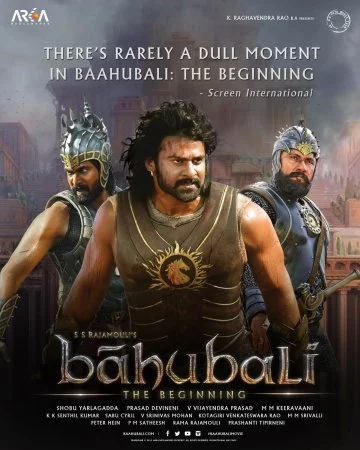
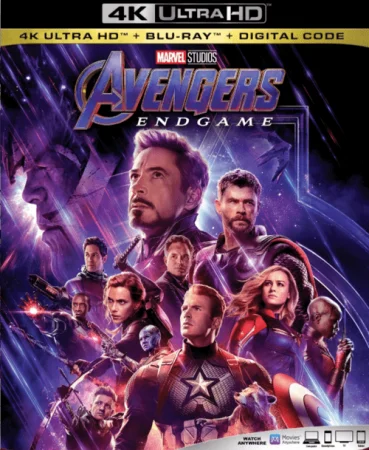
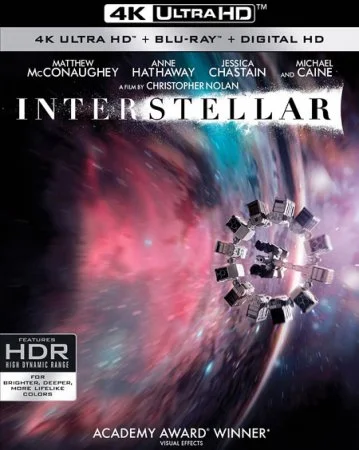
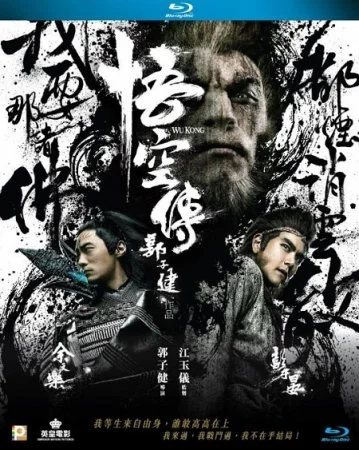



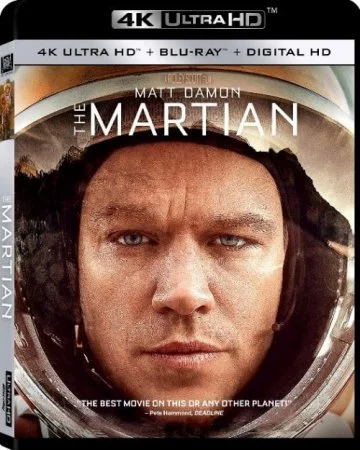
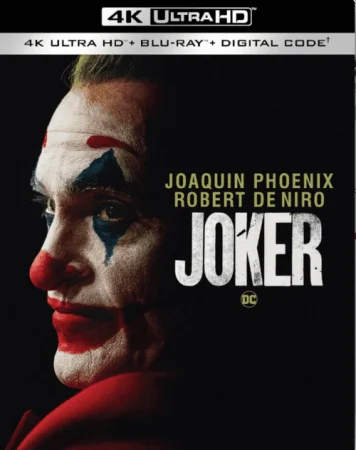




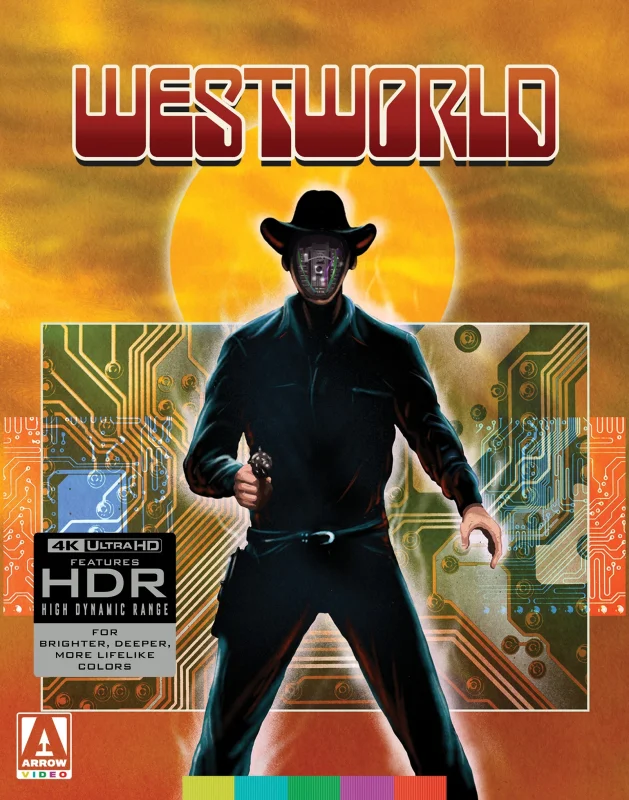
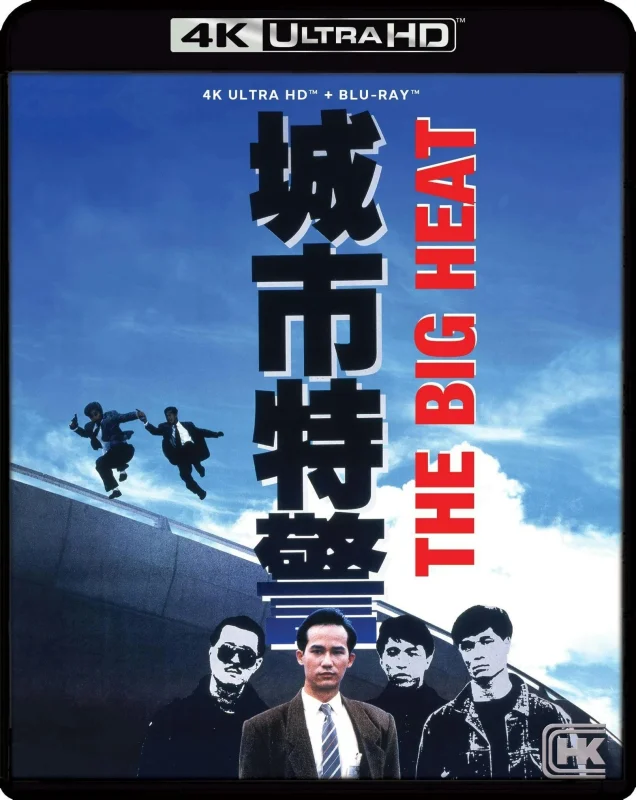

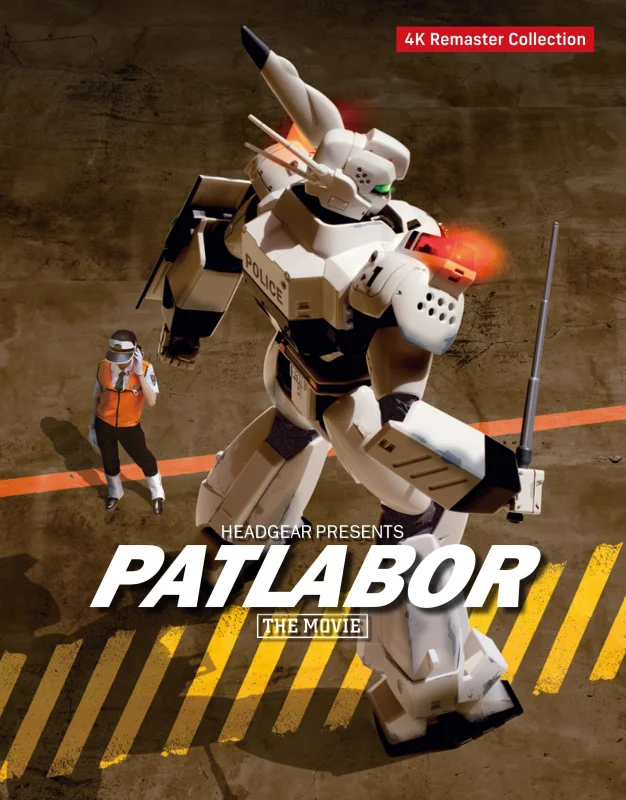





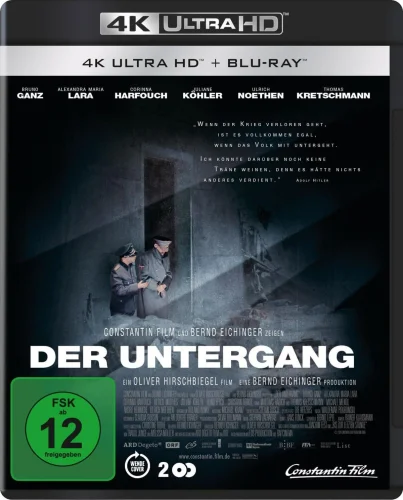
 Like
Like Don't Like
Don't Like
